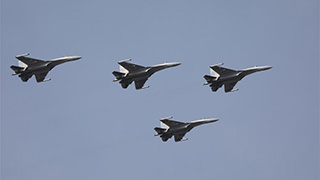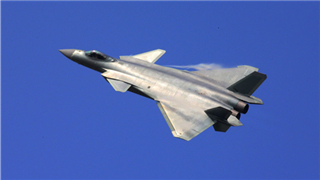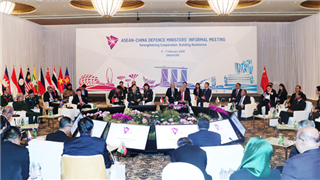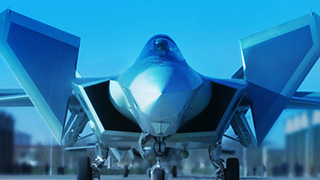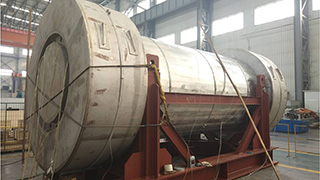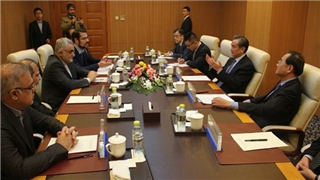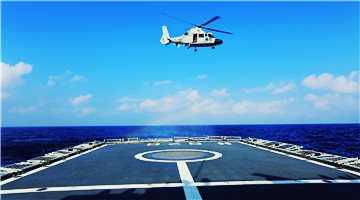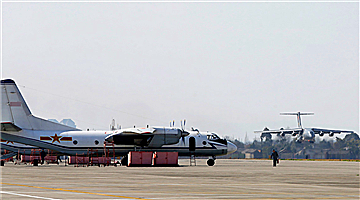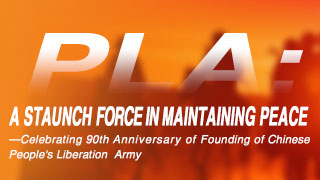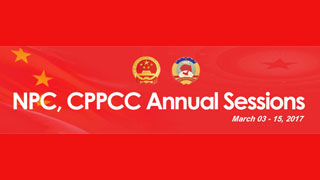By Zhao Xiaozhuo
The U.S. is the first country in the world to have nuclear weapons and the only country to have ever used nuclear weapons in actual combat. It has the largest number of nuclear tests and also the most powerful nuclear arsenal in the world.
However, the Nuclear Posture Review (NPR) published by the United States' Department of Defense (DOD) is filled with an absurd "sense of crisis" that exaggerates the threats and calls for more investment, research and development of new types of nuclear weapons and the improvement of nuclear deterrence.
The NPR is the basis for the U.S. in formulating its nuclear policy. The change in the tone of the report indicates that there will be major adjustments in the U.S. nuclear policy and it will have a profound impact on international peace and stability.
Stimulate the nuclear arms race between major powers
The strategic balance among major powers plays a crucial role in safeguarding international peace and stability. If the U.S. increases its investment in nuclear weapons and reduces the threshold for using nuclear weapons, it will inevitably force other major powers to correspondingly increase their investment and adjust their policies to achieve a new strategic balance with the United States.
The U.S. State Department said on Feb.5 that both the U.S. and Russia fulfilled the requirements of the Strategic Arms Reduction Treaty in the past seven years and the two countries will exchange strategic nuclear weapons data within the next month.
The treaty, signed by the two leaders in Prague, Czech Republic in April 2010, stipulates that both parties should reduce their deployed nuclear warheads to below 1,550 within seven years and deploy no more than 700 delivery vehicles. The treaty entered into force on Feb. 5, 2011.
However, the fate of this treaty after the expiration in 2021 is really worrying as the U.S. published the NPR. After all, since there has been no improvements in the "new Cold War" between the U.S. and Russia, there has been no new nuclear disarmament talks since 2010. This is the longest "blank period" for over half a century.
Seriously undermine the international nuclear non-proliferation regime
The basic agreement on international nuclear non-proliferation is that non-nuclear countries do not develop or reject, seek to acquire nuclear weapons. Nuclear powers stop their nuclear arms race and promote nuclear disarmament. These two pillars complement each other.
The U.S., as one of the countries that possess an extra large nuclear arsenal, should assume special and preferential responsibilities for nuclear disarmament and should create the conditions for the ultimate realization of complete and thorough nuclear disarmament.
However, the fact that the U.S. has taken lead in provoking a nuclear arms race will not only force other nuclear powers to respond but may also stimulate non-nuclear states to speed up the nuclear-weaponization process, which is far from what the international community expects.
It is particularly alarming that the U.S. has not only delayed ratifying the Comprehensive Nuclear Test Ban Treaty (CTBT) but also publicly stated that nuclear tests may be resumed if necessary.
The U.S. uses the vague "non-nuclear strategic attacks against it, its allies, and partners" as conditions for nuclear retaliation, and thus lowers threshold for the use of nuclear weapons. If this strategy is implemented, it will no doubt increase the possibility of a nuclear conflict.
The main driving force in adjusting its nuclear strategy and its nuclear policy is to seek absolute superiority and absolute security.
Sadly, the U.S. has never understood the simple truth that security is universal, that one country cannot be safe while others are unsafe. Security is mutual. Seeking absolute security means sacrificing the security of other countries, which eventually will bring security concerns to the U.S. as well.
Compared with the might of nuclear weapons, the lack of a deep understanding of the devastating consequences of the use of nuclear weapons and the attempt to achieve its own security through the promotion of military superiority is the most worrying factor.
Waving the "nuclear stick" shows that the U.S. is not as confident about its conventional military capabilities like before. It also reflects that their perception of the world is biased and behind the times.
At present, the trend of interconnectedness, interdependence and interest integration of all countries has been deepening. The desire for common development in an environment of peace is growing.
However, the U.S. believes that the world is dark. The U.S. Secretary of Defense Matisse said that the NPR was conducted at a crucial time in the history of the U.S. because it is faced with the most complicated and severe international security situation since the end of the Cold War.
Years ago, the Obama administration put forward the concept of "nuclear weapon-free world". Although it is mainly based on the consideration of the moral high ground and international support, at least it seemed right. Now, the Trump administration does not even bother to say something nice, rather it infuses the concept of "America first" into its own nuclear policy to seek peace through brute strength.
It's only natural for people to ask: If the Trump administration develops nuclear armaments at all costs, where will the U.S. go and how will that affect world security?
(Anish Raj Vincent Pandey also contributed to the copyediting and proofreading of this article.)

